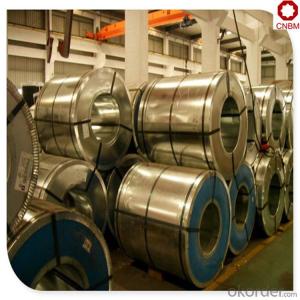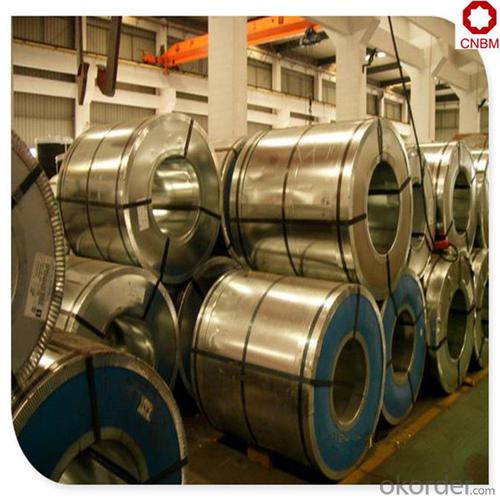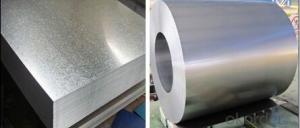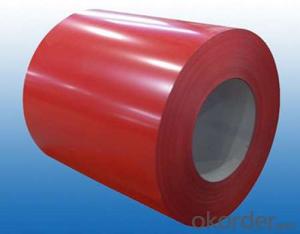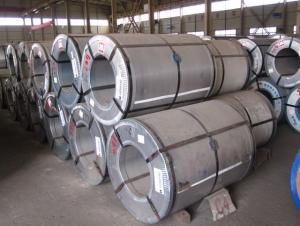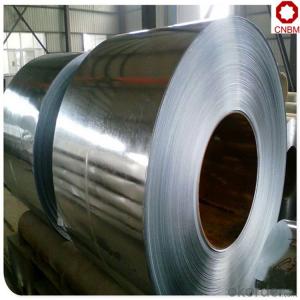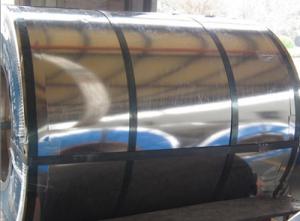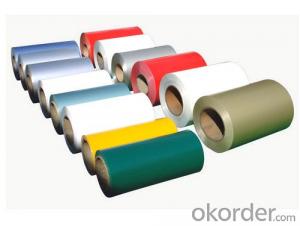Steel coil sheet by hot dipped zinc coating good CS quaity
- Loading Port:
- Shanghai
- Payment Terms:
- TT OR LC
- Min Order Qty:
- 25 m.t.
- Supply Capability:
- 37667 m.t./month
OKorder Service Pledge
OKorder Financial Service
You Might Also Like
Specification
Hot-dip galvanized steel coils are available with a pure zinc coating through the hot-dip galvanizing process. It offers the economy, strength and formability of steel combined with the corrosion resistance of zinc. The hot-dip process is the process by which steel gets coated in layers of zinc to protect against rust. It is especially useful for countless outdoor and industrial applications. Production of cold formed corrugated sheets and profiles for roofing, cladding, decking, tiles, sandwich walls, rainwater protective systems, air conditioning duct as well as electrical appliances and engineering.
Technology test results:
Processability | Yield strength | Tensile strength | Elongation % | 180°cold-bending |
Common PV | - | 270-500 | - | d=0,intact,no zinc removal |
Mechanical interlocking JY | - | 270-500 | - | d=0,intact,no zinc removal |
Structure JG | >=240 | >=370 | >=18 | d=0,intact,no zinc removal |
Deep drawn SC | - | 270-380 | >=30 | d=0,intact,no zinc removal |
EDDQ SC | - | 270-380 | >=30 | d=0,intact,no zinc removal |
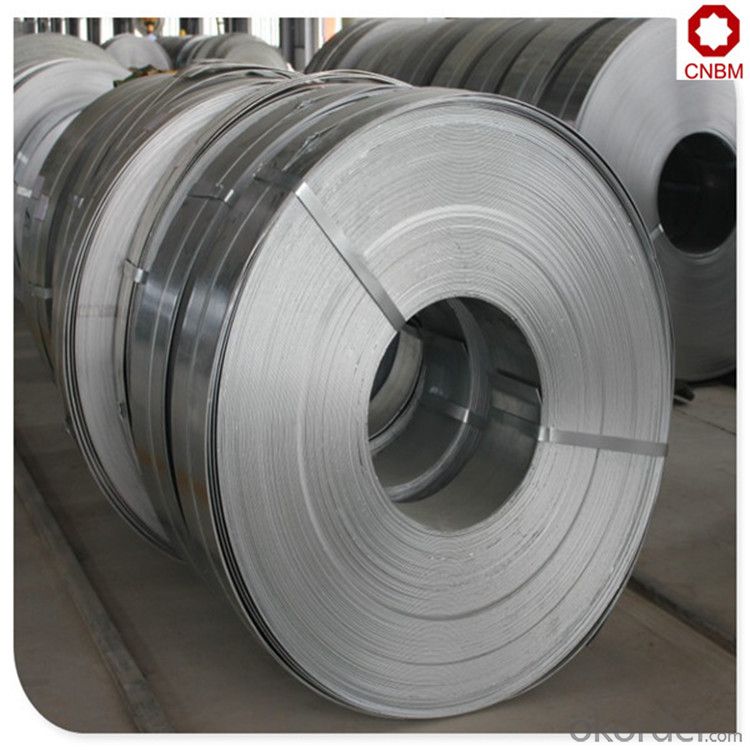
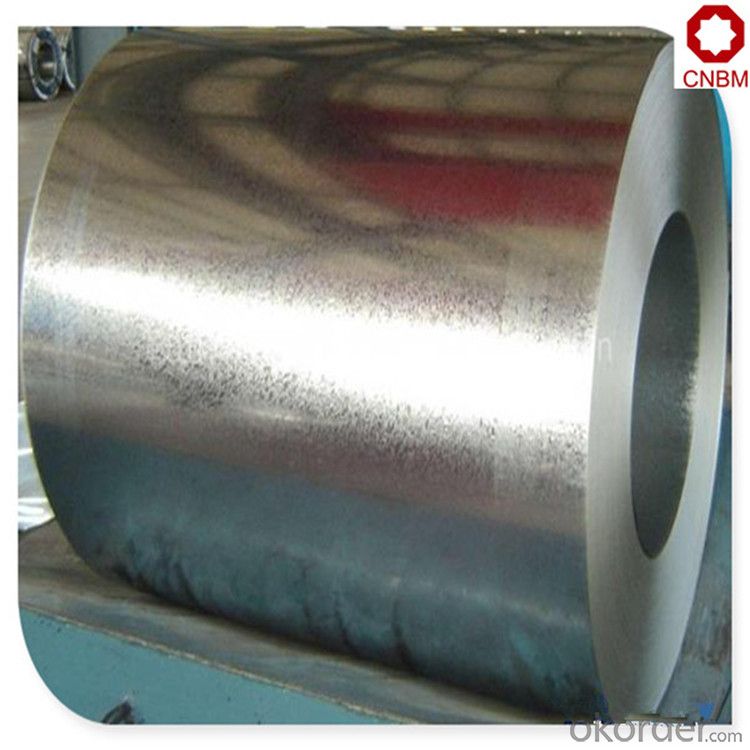
FAQ
Q: How do you guarantee the quality of your product?
A: Every process will be checked by responsible QC which insures every product's quality.
Q: How much is your delivery time?
A: Normally within 30 days of receipt of LC original or prepayment, but mostly according to the specific requirements or the quantity
Q: I need sample, could you support?
A: We can supply you with the sample for free, but the delivery charges will be covered by our customers. For avoiding the misunderstanding, it is appreciated if you can provide the International Express Account for Freight Collect. Also you can have a visit to us, welcome to CNBM!
Company Information
CNBM International Corporation (CNBM International) is the most important trading platform of CNBM Group Corporation, a state-owned company under the direct supervision of State-owned Assets Supervision and Administration Commission of the State Council
- Q: For some reason, if you rub iron oxide or lodestone (both very crumbly, dark, mineral-like materials) into soft, unhardened steel, their particles actually get stuck into the surface of the steel (that is, darkening it). My question is, how does this work? How come iron oxide and lodestone can get stuck, and how come other materials (like silicone carbide, for example) do not?My second question is, are there any materials that can get stuck into steel, that is also blue in color, and how would I best obtain it?
- the coloured metals that u often see are anodised, which means that their surface has reacted with air to form a protective, porous oxide coating. because it is so porous, highly-concentrated dyes can be injected into them to colour them.
- Q: What are the different methods of tempering steel coils?
- There are several different methods of tempering steel coils, each with its own advantages and disadvantages. Some of the most common methods include: 1. Air cooling: This is the simplest and most common method of tempering steel coils. The coils are heated to a specific temperature and then allowed to cool naturally in ambient air. This method is relatively quick and cost-effective, but it can result in uneven cooling and may not provide as precise control over the final properties of the steel. 2. Water quenching: In this method, the steel coils are heated and then rapidly cooled by immersing them in a bath of water. Water quenching provides a more rapid and controlled cooling rate than air cooling, resulting in greater hardness and strength. However, it can also lead to increased distortion and the formation of internal stresses in the steel. 3. Oil quenching: Similar to water quenching, oil quenching involves immersing the steel coils in a bath of oil to rapidly cool them. Oil quenching provides a slower and more uniform cooling rate compared to water quenching, resulting in reduced distortion and internal stresses. However, it also produces slightly lower hardness and strength compared to water quenching. 4. Salt bath quenching: This method involves immersing the steel coils in a heated bath of molten salt to rapidly cool them. Salt bath quenching provides an even and controlled cooling rate, resulting in improved hardness and strength compared to air or water quenching. However, it requires specialized equipment and may not be suitable for all types of steel. 5. Induction hardening: In this method, the steel coils are heated using an induction heating process and then rapidly cooled using either air, water, or oil quenching. Induction hardening allows for precise control over the heating and cooling process, resulting in specific hardness and strength properties in desired areas of the steel. However, it requires specialized equipment and is typically used for specific applications or parts of the steel coils. Overall, the choice of tempering method depends on various factors such as the desired properties of the steel coils, the type of steel being used, and the specific requirements of the end application.
- Q: Can steel coils be coated with color-changing materials?
- Yes, steel coils can be coated with color-changing materials. These materials, commonly known as thermochromic or photochromic coatings, can change color based on temperature or exposure to light, respectively. The application of such coatings on steel coils can provide an aesthetically pleasing and dynamic visual effect, making them suitable for various applications like automotive, architectural, and consumer products.
- Q: What are the different methods of surface treatment for steel coils?
- There are several methods of surface treatment for steel coils, including hot-dip galvanizing, electro-galvanizing, chromating, and painting.
- Q: What are the advantages of using steel coils in the manufacturing industry?
- Using steel coils in the manufacturing industry offers several advantages. Firstly, steel coils are renowned for their strength and durability, making them an ideal choice for various manufacturing processes. They can withstand heavy loads and resist deformation, ensuring that the final product is reliable and long-lasting. Secondly, steel coils are highly versatile and can be used in a wide range of applications across different industries. They can be shaped, molded, or cut into different forms and sizes, catering to diverse manufacturing needs. Additionally, steel coils are cost-effective. Their strength and durability result in a longer lifespan compared to other materials, reducing the need for frequent replacements and leading to cost savings in the long run. Furthermore, steel coils have excellent thermal conductivity, meaning they can efficiently transfer heat. This makes them suitable for applications that require temperature regulation, such as in the automotive and HVAC industries. Moreover, using steel coils in the manufacturing process contributes to a more sustainable and eco-friendly approach. Steel is one of the most recycled materials globally, reducing the need for raw materials extraction and energy consumption, and resulting in a reduced carbon footprint. Furthermore, steel coils can be coated with protective layers to enhance their resistance to rust and corrosion. This makes them suitable for outdoor applications or industries with corrosive environments. Lastly, steel coils offer consistent quality and uniformity in terms of dimensions, mechanical properties, and surface finish. This ensures that the end products meet the required specifications and maintain a high level of quality. To summarize, the advantages of using steel coils in the manufacturing industry include their strength, durability, versatility, cost-effectiveness, excellent thermal conductivity, recyclability, corrosion resistance, and consistent quality. These benefits make steel coils a popular choice for various manufacturing processes across different industries.
- Q: How are steel coils used in the manufacturing of seat structures?
- Steel coils are commonly used in the manufacturing of seat structures as they provide strength and durability. These coils are typically shaped and molded into springs that are then integrated into the seat cushions and frames. The steel coils help to provide support and enhance the overall comfort of the seats by ensuring proper weight distribution and minimizing sagging over time.
- Q: Can we construct a barn using steel and will it be a durable one?
- Steel barns in the USA is the going fad; they are both strong and economical; and some companies offer DIY kits
- Q: How are steel coils used in the manufacturing of fuel systems?
- Steel coils are commonly used in the manufacturing of fuel systems to create various components such as fuel tanks, pipes, and fittings. These coils are often shaped, cut, and welded to form the desired fuel system parts. The high strength and durability of steel make it an ideal material for fuel systems, ensuring the safe and efficient transportation of fuel.
- Q: How are steel coils used in the production of electrical resistors?
- Steel coils are used in the production of electrical resistors as the core material for winding wire around. The coils provide a stable structure, allowing the wire to be tightly wound and creating the necessary resistance for regulating electric current flow.
- Q: I have heard that heating the steel and applying oil will help with corrosion, and will give that aged look. I would like to know finishes available without painting. thanks
- Windex works the suited. makes it seem purely like a mirror. if it quite is dingy their is those products that they sell in supermarkets and motor vehicle automobile areas shops observed as brasso it gets the annoying deposits out.
Send your message to us
Steel coil sheet by hot dipped zinc coating good CS quaity
- Loading Port:
- Shanghai
- Payment Terms:
- TT OR LC
- Min Order Qty:
- 25 m.t.
- Supply Capability:
- 37667 m.t./month
OKorder Service Pledge
OKorder Financial Service
Similar products
Hot products
Hot Searches
Related keywords
